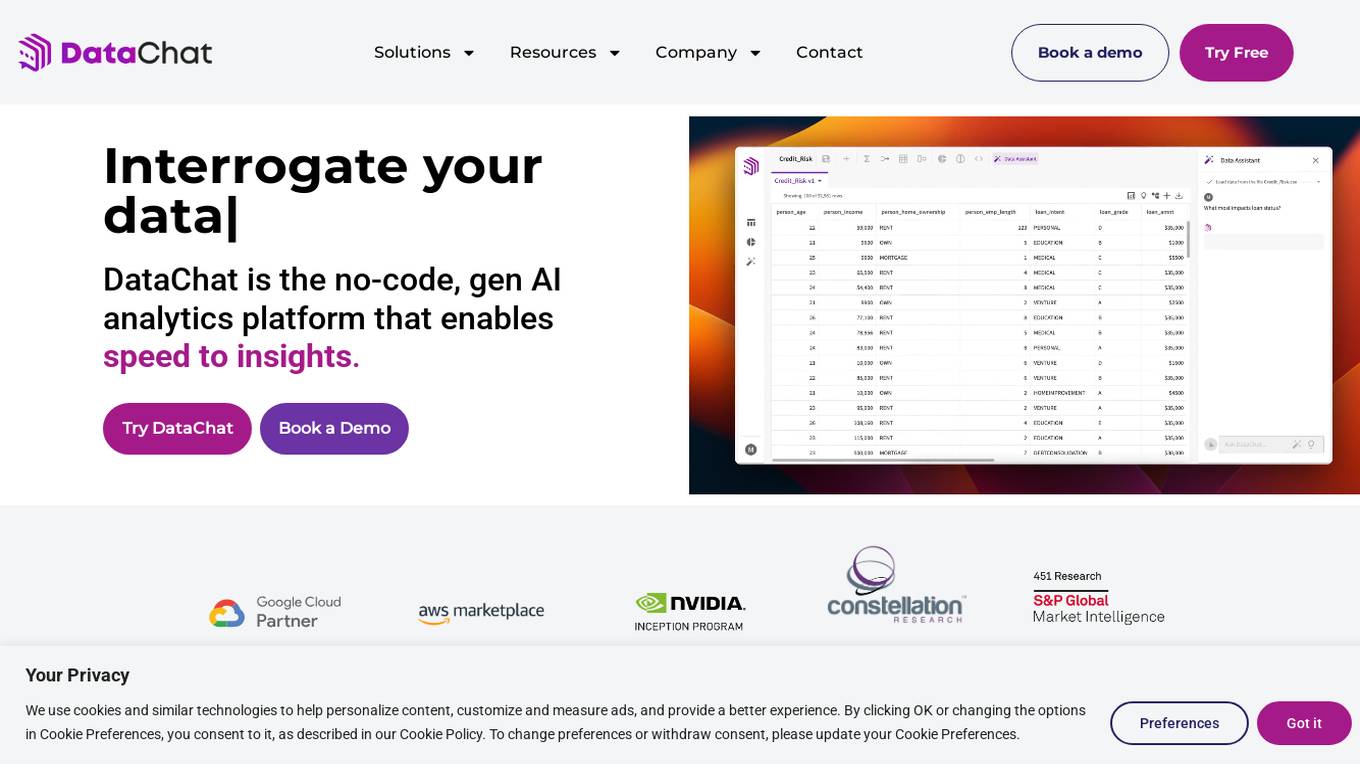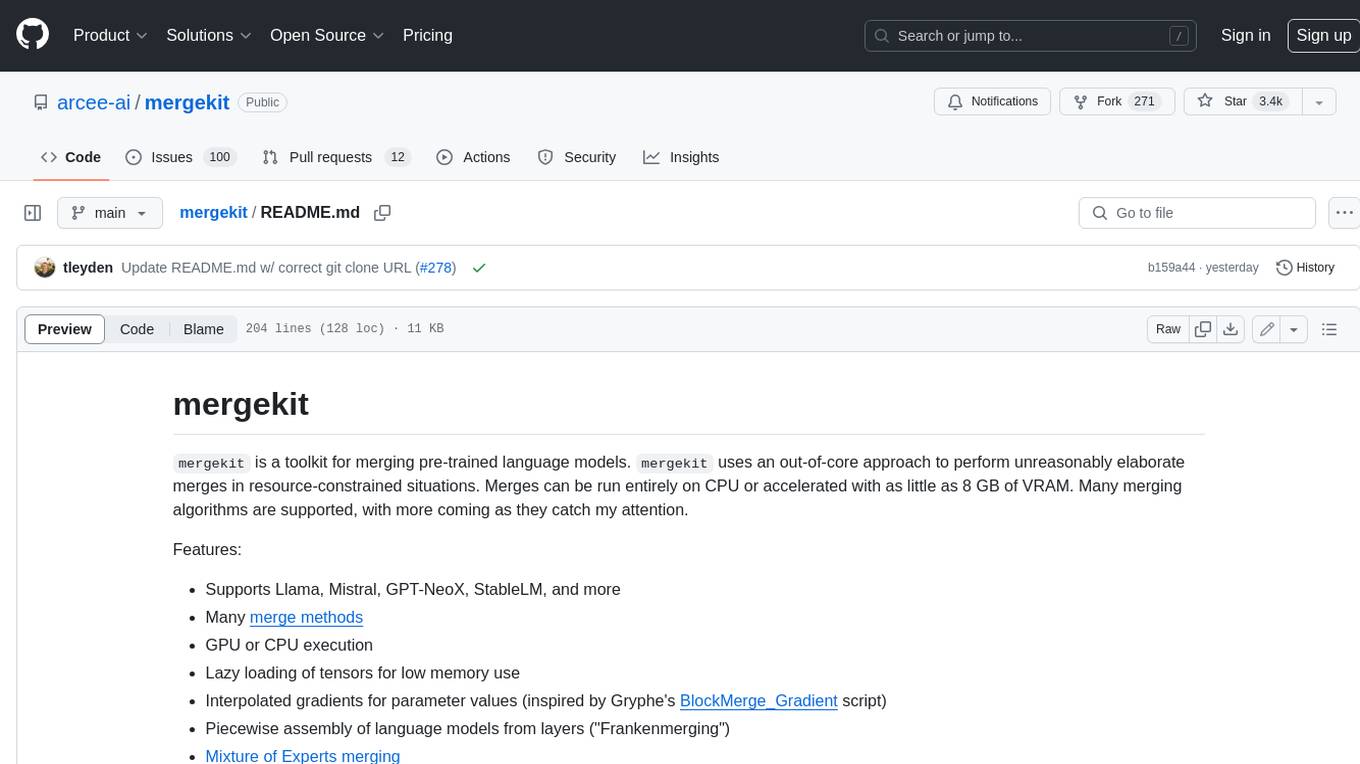Best AI tools for< Interpolate Models >
1 - AI tool Sites

DataChat
DataChat is a no-code, AI analytics platform that enables business users to ask questions of their data in plain English, empowering them to gain insights quickly and efficiently. The platform allows users to refine questions, reshape data, and adjust insights without any coding required. DataChat ensures transparency in the workflow and maintains data security by performing all computations within the user's data warehouse. With DataChat, users can easily access real-time insights and make data-driven decisions to enhance their business operations.
1 - Open Source AI Tools

mergekit
Mergekit is a toolkit for merging pre-trained language models. It uses an out-of-core approach to perform unreasonably elaborate merges in resource-constrained situations. Merges can be run entirely on CPU or accelerated with as little as 8 GB of VRAM. Many merging algorithms are supported, with more coming as they catch my attention.
